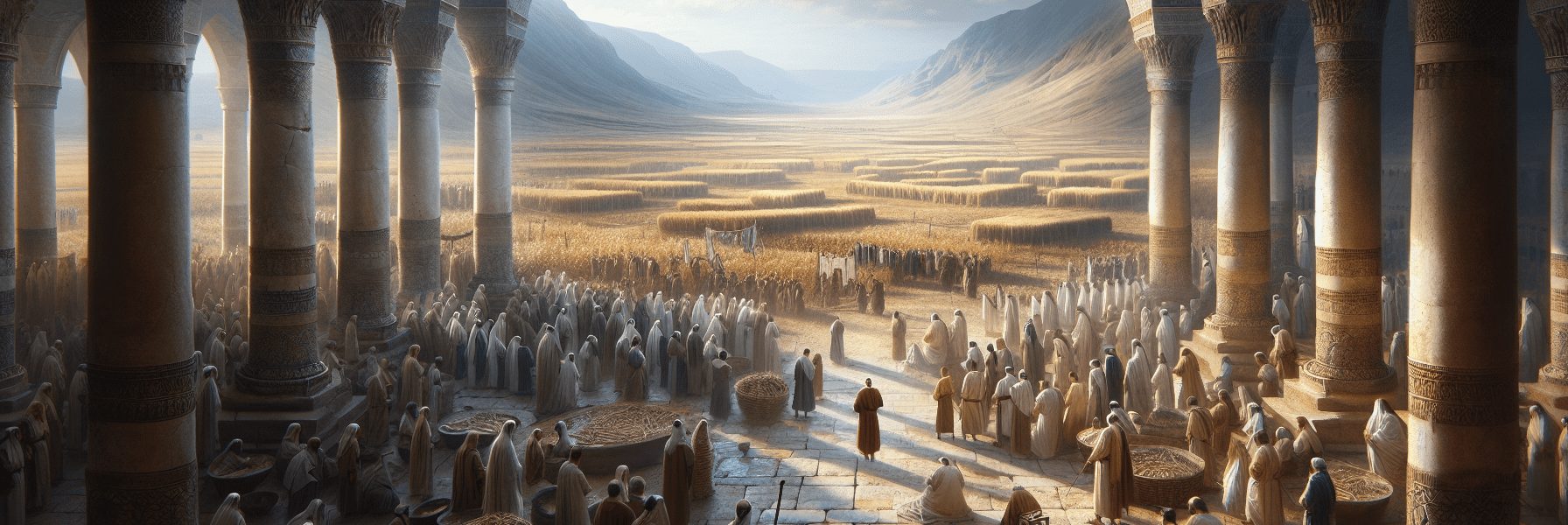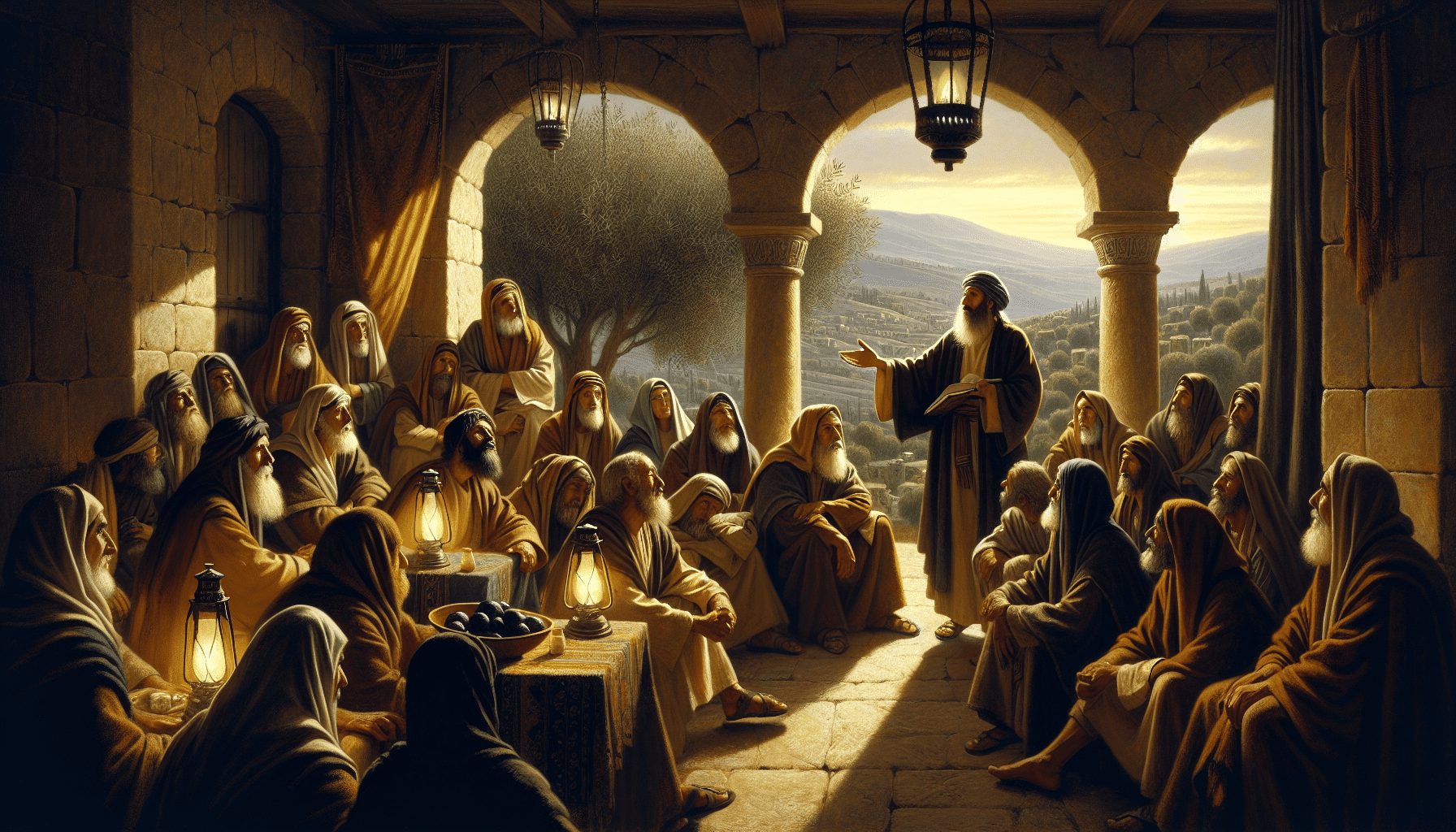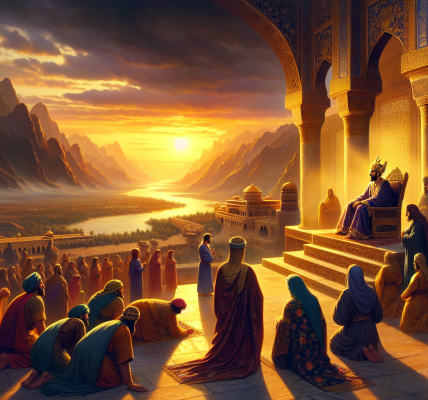**A Song of Restoration: A Story Based on Psalm 85**
In the days when the land of Judah lay weary beneath the weight of its sorrows, the people cried out to the Lord. The memory of their captivity still lingered like a shadow, though they had returned to their homeland. The fields, once lush and golden, now bore the scars of neglect. The walls of Jerusalem, though rebuilt, could not yet erase the ache of past destruction. The people remembered the words of the prophets—how the Lord had promised restoration—yet their hearts trembled between hope and doubt.
It was in this time of quiet desperation that the Levites gathered in the courts of the newly raised temple. The air was thick with the scent of incense, curling upward like the prayers of the faithful. Among them stood Asaph, a singer of psalms, his voice weathered by years of lament and praise. He lifted his hands and began to sing, his words weaving the heart of the people into a melody before the Lord.
*”You, O Lord, showed favor to Your land;*
*You restored the fortunes of Jacob.*
*You forgave the iniquity of Your people*
*and covered all their sins.”*
The congregation murmured in agreement. They remembered the mercy of God—how He had brought them back from exile, how He had softened the hearts of kings to let them return. But the weight of their present struggles pressed upon them. Though they were home, peace seemed distant, like a fading echo.
Asaph’s voice grew stronger, bolder, as he continued:
*”You set aside all Your wrath;*
*You turned from Your fierce anger.”*
A woman in the crowd clutched her child closer, tears slipping down her cheeks. She had known anger—both God’s and her own. She had raged at the heavens in Babylon, had wept at the ruins of her ancestors’ homes. Yet here, in this moment, the words of the psalm wrapped around her like a promise.
But then the song shifted, and Asaph’s tone became pleading:
*”Restore us again, God our Savior,*
*and put away Your displeasure toward us.*
*Will You be angry with us forever?*
*Will You prolong Your anger through all generations?”*
The question hung in the air, heavy and honest. The people knew their history—how their fathers had turned away, how they themselves still stumbled. Would God’s patience wear thin? Would He turn His face from them once more?
Yet Asaph did not stop there. His voice, though trembling with vulnerability, rose with hope:
*”Will You not revive us again,*
*that Your people may rejoice in You?*
*Show us Your unfailing love, O Lord,*
*and grant us Your salvation.”*
A silence fell, deep and expectant. It was as if the earth itself held its breath, waiting for the answer. Then, like the first light of dawn breaking over the hills, the psalm took a turn—not toward despair, but toward promise.
Asaph’s eyes shone as he sang the Lord’s reply, not in thunder, but in a whisper to the heart:
*”I will listen to what God the Lord says;*
*He promises peace to His people, His faithful servants—*
*but let them not return to folly.”*
The people bowed their heads. This was the balance of divine grace—mercy given, but with a call to faithfulness. God would not abandon them, but neither would He tolerate their rebellion.
Then came the most beautiful words of all, painting a vision of a future drenched in God’s glory:
*”Surely His salvation is near to those who fear Him,*
*that His glory may dwell in our land.*
*Love and faithfulness meet together;*
*righteousness and peace kiss each other.*
*Faithfulness springs forth from the earth,*
*and righteousness looks down from heaven.”*
A collective sigh moved through the crowd. They could see it—the harmony of heaven and earth, where mercy and truth walked hand in hand, where justice and peace embraced like long-parted friends. It was a promise of wholeness, of a kingdom where God’s goodness would reign unopposed.
Asaph finished with a triumphant declaration:
*”The Lord will indeed give what is good,*
*and our land will yield its harvest.*
*Righteousness goes before Him*
*and prepares the way for His steps.”*
The people left the temple that day with lighter hearts. The fields outside Jerusalem still bore the marks of struggle, but in their spirits, a seed of hope had been planted. They knew the road ahead would require faithfulness, but they also knew this: the Lord was not done with them.
For in His time, mercy would bloom like the spring after a long winter, and the land would sing with the joy of His salvation.




